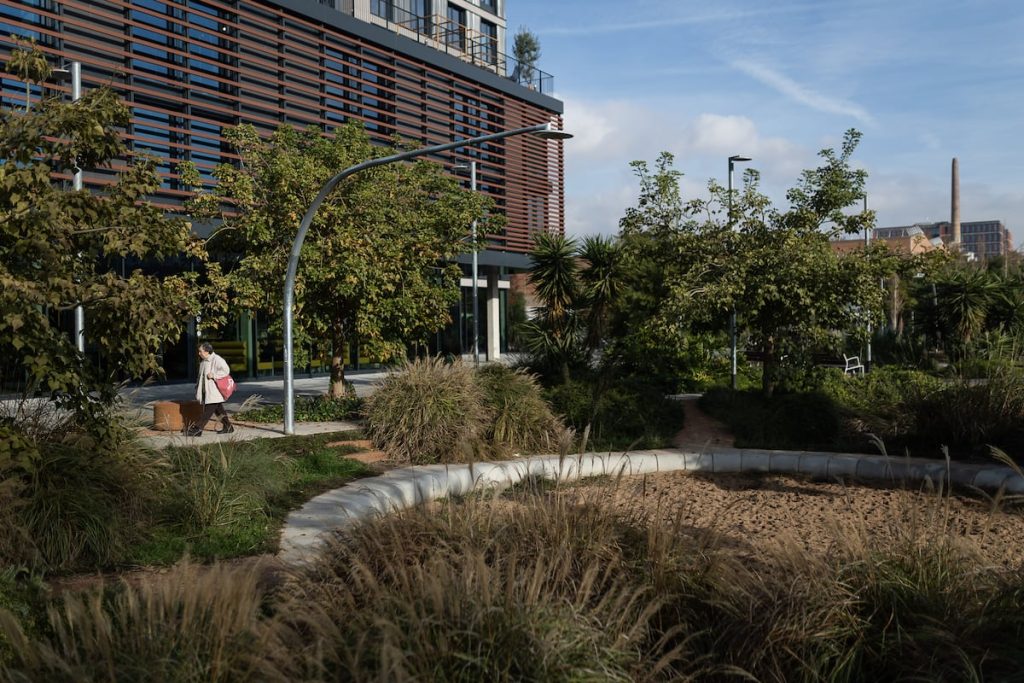In the year that masks stopped being mandatory outdoors is coming to an end, marking a visible change in the ongoing COVID crisis. While the mask mandate may be ending, the virus is still present, and cities like Madrid and Barcelona are implementing policies to minimize its impact and improve quality of life. These cities are taking divergent paths towards a post-pandemic urban future. Barcelona, under the leadership of Mayor Ada Colau, is prioritizing pedestrian and bicycle spaces over cars, while Madrid, led by Mayor José Luis Martínez Almeida, is more cautious in traffic restrictions. Both cities are promoting outdoor dining to boost the economy, while facing legal challenges for exceeding nitrogen dioxide safety limits set by the EU.
Urban mobility is a key focus for post-pandemic city planning. Barcelona has accelerated urban transformations during the crisis, with a push towards pedestrian-friendly infrastructure and expanded biking lanes. The Superblock project aims to create pedestrian-friendly zones by converting one-third of the streets in Eixample into green corridors. In Madrid, the increase in walking and cycling has not come at the expense of decreased car use. The city is struggling to recover pre-pandemic levels of public transportation usage despite lower fares. Addressing urban mobility challenges requires limiting car use in city centres and encouraging mixed-use developments. Both cities are expanding bike-sharing systems to promote eco-friendly transportation.
The expansion of outdoor dining spaces has become a battleground for urban space in post-pandemic cities. In Barcelona, the city has implemented regulations for outdoor dining areas, while Madrid has extended temporary COVID-era terrace permits with increased fees. The debate over outdoor dining spaces reflects a larger struggle for control of public space, with urban planners emphasizing the need for flexible public spaces that accommodate various activities. Both cities are facing challenges in managing last-mile delivery impacts on city streets, with Barcelona implementing a new delivery fee for large operators.
Air quality remains a significant challenge for both Madrid and Barcelona, as both cities have repeatedly exceeded nitrogen dioxide safety limits set by the EU in previous years. Brussels is planning to reduce nitrogen dioxide limits in line with WHO recommendations, emphasizing the need for structural interventions to reduce vehicle emissions. The implementation of urban car restrictions, such as Madrid Central, has shown positive impacts on air quality, with reductions in nitrogen dioxide levels near city centers. However, addressing air quality challenges will require long-term structural changes to reduce health risks associated with poor air quality.
As cities navigate the challenges of post-pandemic urban planning, the focus remains on creating sustainable, livable spaces that prioritize public health and environmental sustainability. Barcelona and Madrid are taking different approaches to urban mobility, outdoor dining, and air quality management, reflecting the complex and multifaceted nature of post-pandemic city planning. By addressing these challenges with innovative solutions and a commitment to sustainability, cities can create healthier, more resilient urban environments for all residents.















